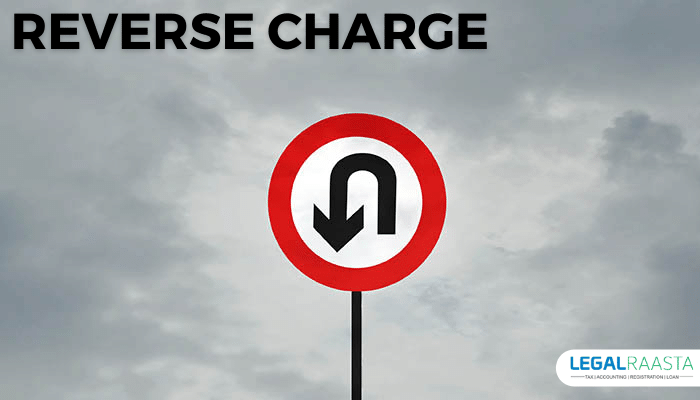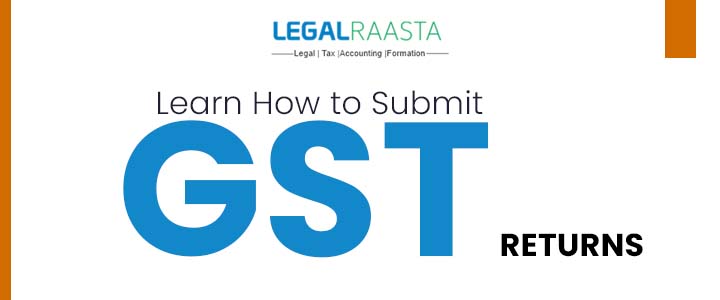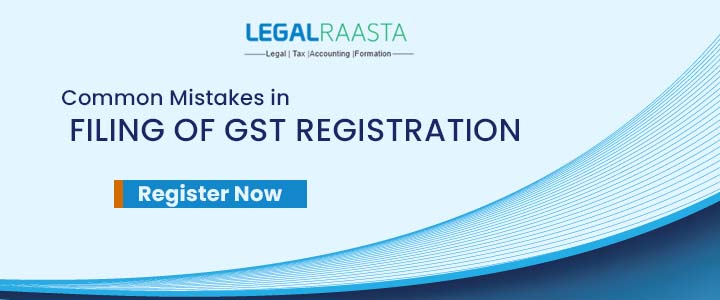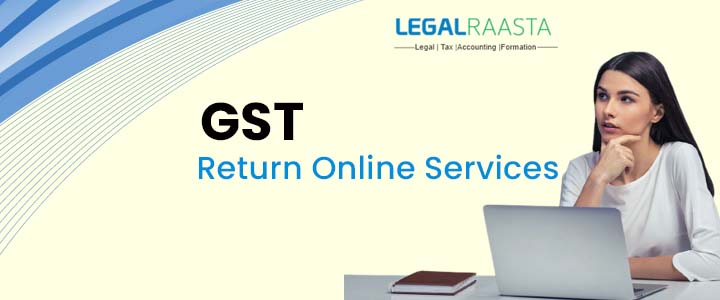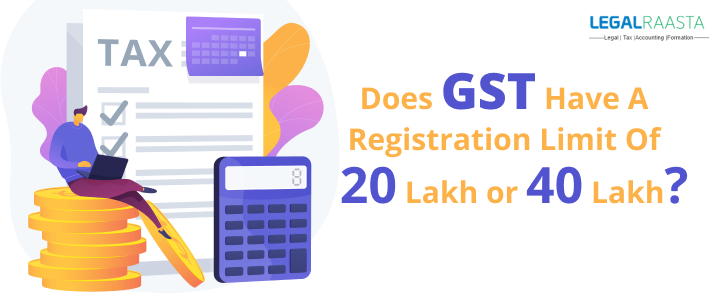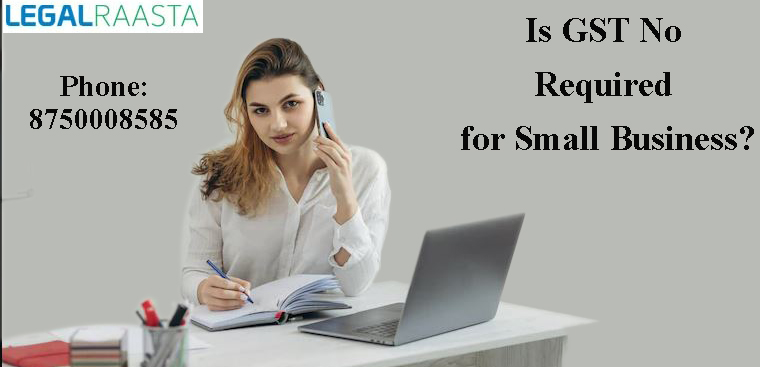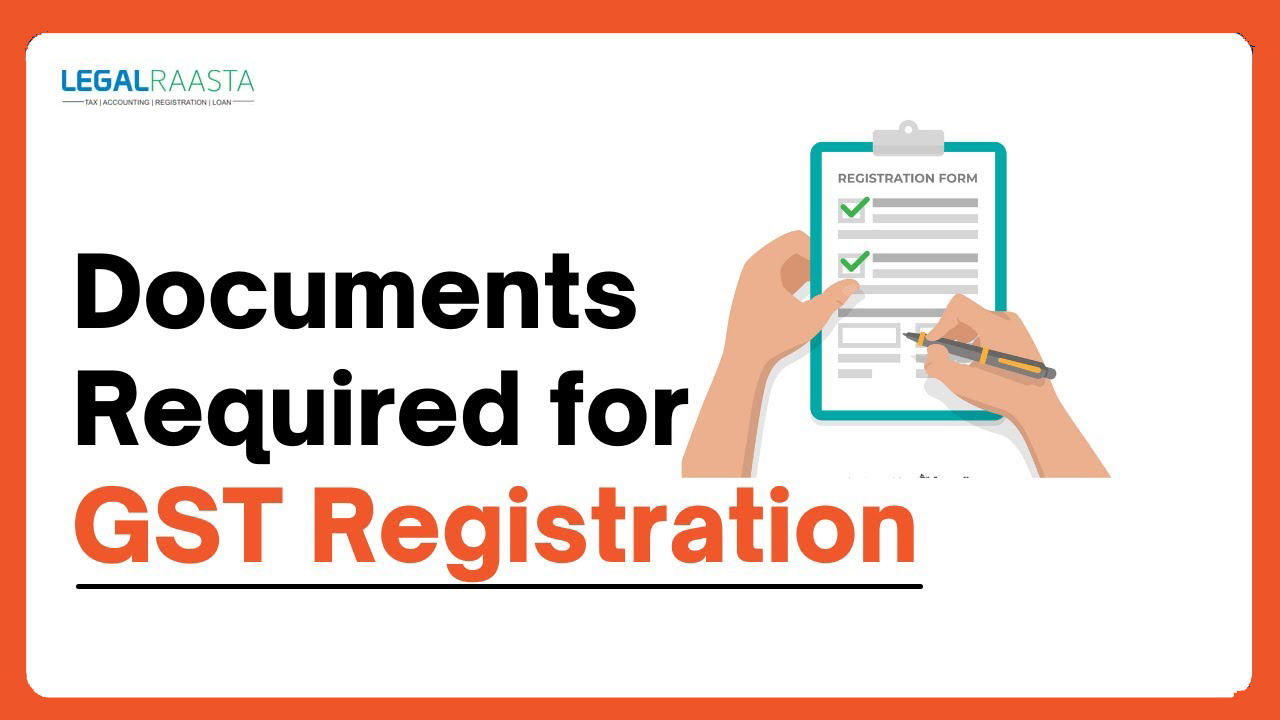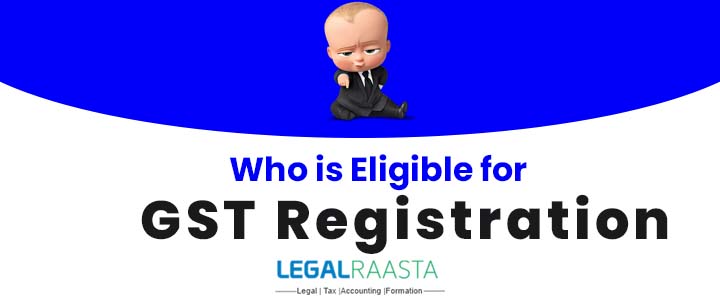Reverse Charge: Buying from Unregistered Dealers | Section 9(4) of CGST Act
Indian GST is a comprehensive indirect tax on the manufacture, sale, and consumption of goods and services. The Indian government has implemented the Indian Goods & Services Tax (GST) from 1st July 2017 with the objective to streamline India’s indirect taxation system. Indian Government has imposed Reverse Charge under Indian GST for certain goods or services which attracts reverse charge provision. In order to understand the provisions of Indian GST better, let us discuss some important aspects in detail below:
Under Indian GST, the Indian government has imposed reverse charges on certain goods & services which attracts reverse charge provision. By this section, the Indian Government wants to ensure that the benefits of the input tax credit are not denied due to the unavailability of registered dealers or suppliers under Indian GST. As per Sec 9(4) of the Indian CGST Act, 2017 person purchasing goods from an unregistered dealer is liable to pay GST on a reverse charge basis. Indian Government has specified certain conditions where a registered person can avail input tax credit even in case of purchase from unregistered dealers which are discussed later in this article.
Section 9(4) of the Indian GST Act
In case of a supply of any goods or services, the Indian government has imposed a reverse charge on certain transactions as follows:
As per the Indian GST Act, a registered person shall be liable to pay tax for the supplies made by him. Indian Goods and Services Tax (GST) is a comprehensive indirect tax on the manufacture, sale, and consumption of goods and services. The Indian government has implemented the Indian Goods & Services Tax (GST) with effect from 1st July 2017 for the indirect taxation system in India. Indian Government has imposed reverse charge under Indian GST for certain goods or services which attracts reverse charge provision. Indian Government wants to ensure that the benefits of input tax credit are not denied due to the unavailability of registered dealers or suppliers under Indian GST. Let us discuss section 9(4) of the Indian GST Act in detail.
Condition 1: If any taxable service is provided by the recipient of such service, then the service provider will not be liable for paying tax on a reverse charge basis.
Condition 2: If any input service is used by the recipient then the supplier will not be liable for paying tax on a Reverse Charge basis Condition 3: Indian GST Act is clear about the fact that in case of the supply of any good or service, the Indian government has imposed a reverse charge on certain transactions only if the conditions are met. Indian Government has also prescribed transitional provision under Indian GST for Reverse Charge. Let us discuss one-by-one conditions which will help you to understand all relevant provisions for Reverse Charge enforceable under Indian GST more clearly.
What are the goods or services attracting reverse charge?
Goods or services attracting reverse charge will depend on the Indian state you are in. In India, Reverse Charge applies to Indian states which have implemented the Goods and Services Tax Act. They include Gujarat, Maharashtra, Haryana, Kerala, Punjab, Uttar Pradesh, and Jharkhand.
Under Reverse Charge, you will be liable to pay tax on the purchase of taxable goods or services from unregistered dealers if you are registered under Indian GST. You can read more about Indian GST registration here.
As a customer who is registered under Indian GST, your responsibility will be that you have to pay tax on a reverse charge basis if:
You buy goods/services from an Indian supplier who is not registered with the Indian government for Indian GST. The supply of goods and services affects your business.
You buy a certain specific type of goods or services which attract reverse charges from any other Indian supplier – one who doesn’t have a valid Indian GST number. In this situation, the recipient may also be deemed as a seller in some cases [if there’s no invoice or if the Indian GST number on the Indian GST invoice is invalid].
You buy goods/services from an Indian supplier who is registered under Indian GST but doesn’t have Indian GST registration for certain business segments. For example, some businessmen registered with Indian GST are not required to get Indian GST registration for their businesses falling under the B2C segment or Non- Profit organizations.
How to check whether your Indian supplier has valid Indian GST Registration?
It’s simple! A step-by-step guide on how you can check the validity of the Indian GST numbers issued by the Indian government can be found here. As per section 9(4) of the CGST Act, the recipient (which includes both buyer and seller in most cases) will be liable to pay tax on a reverse charge basis.
So, if you’re a registered Indian supplier who sells you taxable goods and services without a valid Indian GST number on an Indian GST invoice, then as a recipient (which includes both buyer and seller in most cases) you will be liable to pay tax under reverse charge. This is because the Indian supplier didn’t quote the Indian GST number.
Please note that Indian suppliers can also be held liable for penalty & interest under section 11 of the CGST Act if Indian GST registration is not issued within 60 days from the date of application for Indian GST registration by him. In case, Indian supplier doesn’t apply for Indian GST Registration then its end-customer who’ll have to bear interest and penalty.
Are Indian suppliers liable to pay tax on a reverse charge basis?
If an Indian supplier is registered Indian GST then the Indian supplier is required to quote the Indian GST number and pay tax under reverse charge. However, in case an Indian supplier doesn’t have Indian GST registration or Indian GST number, then the Indian Supplier won’t be liable for paying tax under Reverse Charge. In this situation, the recipient will have to pay tax on a reverse charge basis if he/she has valid Indian GST Registration [e.g. if you’re a business registered with Indian GST].
What happens when there’s no invoice or if the Indian GST number on the Indian GST invoice of an unregistered dealer is invalid?
In such cases, the following situations can arise:
Indian supplier’s Indian GST registration is valid Indian GST number on Indian GST invoice is invalid Indian supplier’s Indian GST registration is invalid In case Indian supplier is registered under Indian GST with Indian GST registration but not required to get Indian GST number for certain business segments, then it depends upon the nature of transaction i.e., purchase or sale.
In this situation, if you’re a purchaser and goods/services are purchased from an unregistered dealer [no invoice], then in such cases, you will have to pay tax on a reverse charge basis in two cases:
Unregistered Indian supplier doesn’t have Indian GST number Even when there’s no invoice from unregistered dealer [sale] Unregistered Indian dealer purchases taxable goods/services from another unregistered dealer and Indian GST number of latter is invalid Indian supplier’s Indian GST registration is valid Indian GST number on Indian GST invoice is invalid Indian supplier’s Indian GST registration is not required for the certain business segment.
What happens if you purchase taxable goods/services from an unregistered person who claims exemption from tax under CGST Act? What u/s 9(4) says?
If such person purchases taxable goods and services and claim an exemption under section 9(3) or section 9(4A) or section 9(4B) or section 9(4C) of CGST Act, the Indian supplier will have to pay tax under reverse charge basis in Indian GST. Indian suppliers can claim credit for such Indian GST paid on taxable goods/services purchased from an unregistered person. This is because section 16 of the Indian IGST Act says that Indian GST paid on the purchase of goods or services shall be deemed to have been paid out of the Central Government’s own resources only if Indian supplier bills Indian purchaser after paying tax, i.e., Indian supplier must also pay Indian GST while billing Indian purchaser and then claim credit while filing Indian GST Return (IGST Return).
Is there any provision or notification regarding payment of interest by unregistered dealers (seller) and penalty by a legal entity (purchaser)?
Section 11 of the Indian GST Act provides for penalty and interest on late filing of Indian GST Return (IGST Return). If an Indian supplier fails to file Indian GST Return within the due date, then the Indian purchaser will be liable to pay interest. This is because section 12(2) of the Indian IGST Act says that an Indian buyer is required to make payment while filing an Indian GST return (IGST return) if tax has been paid by an Indian supplier. There’s no provision about penalty and interest under section 11 of the Indian GST Act in case you purchase taxable goods/services from an unregistered dealer [reverse charge]. However, penalty and interest shall have to be borne by the receiver i.e., a legal entity registered with Indian GST under reverse charge mechanism. In Indian GST, the Indian purchaser is liable to pay Indian tax and then claim credit in Indian GST return (IGST return).
What happens if an Indian supplier fails to collect Indian GST from you?
If an Indian supplier fails to collect Indian GST from you while billing taxable goods/services, then in such cases, the Indian purchaser will be liable to collect Indian GST and deposit with Indian Tax Authorities. However, in such cases, if the Indian purchaser is registered under section 12(4) of the Indian IGST Act [e.g., annual turnover less than INR 1 crore], then he shall not be required to deduct tax at source on a reverse charge basis.
In certain transactions with an unregistered dealer who claims exemption under section 9(3) or section 9(4A) or section 9(4B) or section 9(4C) Indian GST, the Indian purchaser (registered Indian company) is required to deduct Indian tax at source and deposit with Indian Tax Authorities. This is because the Indian supplier does not have an Indian GST number and the Indian purchaser has to pay Indian tax on such transactions.
Section 47 of CGST Act says that where a person has collected the tax from the sale of goods/services by an unregistered dealer [reverse charge], then such person [Indian purchaser] shall be liable to deduct tax at source on a collection of such amount and deposit it with Indian Tax Authorities on or before 10th of next month. If there’s any delay in depositing of such Indian GST, then section 48 of CGST Act says Indian purchaser will be liable to pay interest.
What if the Indian supplier (seller) does not issue an Indian GST invoice?
If an Indian supplier issues an Indian GST invoice, you can verify whether tax collected from you by the Indian supplier has been deposited with Indian Tax Authorities or not. However, in case the Indian supplier doesn’t issue an Indian GST invoice and does not deposit the collected tax with Indian Tax Authorities then it’s very difficult for the purchaser (Indian company) to find out whether the Indian supplier has deposited collected tax or not. In such cases, section 50 of the CGST Act provides certain remedies to claim refunds from Indian Tax Authorities.
Section 52 of CGST Act says that interest shall be paid as per section 11 delayed payment/filing of returns/payment of tax
Section 54 says Indian GST paid on taxable goods/services shall be refunded under section 19/20 Indian GST Act. Indian GST paid on exempted goods/services shall not be subject to Indian GST Refund.
In case an Indian supplier is buying from an unregistered dealer (URD) and if an Indian supplier collects Indian tax by showing you are an invoice, then it may be difficult for the Indian supplier and purchaser (Indian company) to find out whether the Indian supplier has deposited collected tax or not. If an Indian supplier fails to deposit such collected tax with Indian Tax Authorities then the purchaser will also be liable to pay interest. In such cases, section 10(12B) [section 36] provides a remedy to the purchaser (Indian company). The idea
What is the process of paying tax via RCM on purchases from URDs
- You must fill in all of the required HSN codes for the goods and services that fall under RCM. This should not be a problem since you may utilize our free HSN calculator to obtain all of the HSN codes for all of the items..
- Our program sends the completed invoice to our software, where you can edit it. You may select whether or not RCM is applicable while uploading invoices.
- We’ll read your invoices with our software. If any of them are on the correct list, you will get an alert notification urging you to declare it.
- Our software will identify invoices that do not have a GSTIN and must be subject to RCM.
- You’ll be prompted to choose the proper invoice..
- You’ll need to enter the invoice taxable value and GST payable under RCM when you create your account..
- The software will keep track of these bills and remember how they were addressed. If an invoice from the same GSTIN was previously marked as under Reverse Charge, the system will notify the user that a similar invoice from the same GSTIN has previously been under Reverse Charge, suggesting that the new invoice may also be under Reverse Charge.
What are the Profit & Loss items which might attract GST under RCM
You must keep a close watch on your P/L account’s cost section. The following are some examples of expenses that might be subject to GST under RCM.
- Rent
- Commission payments
- Printing and stationery
- Repairs and Maintenance
- Office Maintenance
- Vehicle maintenance
- Computer maintenance
- Legal Fees
- Consultancy Fees
- Professional Fees
- Audit Fees
- Freight and transportation expenses (GTA)
- Gift expenses
- Business promotion expenses
- Advertisement
Exceptions
For these items, RCM will not apply for the simple reason that GST is not applicable on these:
- Salary and wages
- Electricity
- Interest
- Car fuel (Diesel/petrol)
- Government Fees (such as MCA fees, land registration fees, etc.)
Exempted Goods and RCM
RCM will not apply if the supply involves exempt items/services.
Examples:
- A registered person hires an auto-rickshaw for commuting from one place to another.
As a result of the aforementioned, this chapter is not relevant since transportation by auto rickshaw is exempt from GST.
- A registered person stays in a budget hotel whose tariff is Rs. 800 per day. Is GST applicable on RCM?
Since the room charge is less than Rs 1,000, it is not subject to GST. RCM does not apply since the asking rate was lower than the reserve price.
Effect
This will increase trade credit, compliances, classification issues, and other business operations for firms who are required to register. Registered businesses may prefer to deal with other registered dealers because it is easier to run their business. This may impede the operations of unregistered merchants. They may be compelled by market share preservation to register or at the very least assist their registered clients in GST compliance (such as HSN Codes, applicable GST rates, etc.).
Read, also: Impact of GST on works contract
CGST Rules: Chapter 5 – Input Tax Credit
Inverted Duty Structure under GST

